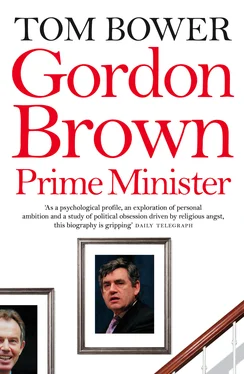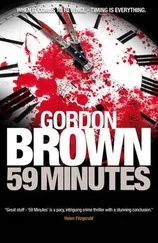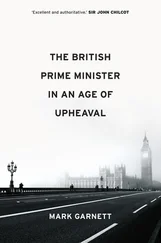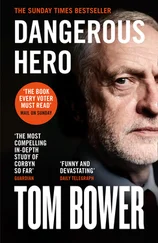In common with many party stalwarts, Brown regarded Attlee’s nationalisation of industry, the creation of the NHS and his education reforms as a historic benchmark. He ignored the food rationing, industrial stagnation and economic incompetence which eroded Labour’s popularity before the 1950 and 1951 general elections, excluding the party from office for thirteen years. In Brown’s judgement, Attlee’s glory was the destruction of the barriers to equality and social justice. Those landmark successes, he lamented, were being reversed by the Thatcherite assumption that inequality was permanent. To restore Attlee’s legacy, he urged the redistribution of wealth. The top 10 per cent of the population, who, he claimed, owned ‘ 80 per centof our wealth and 30 per cent of our income even after tax’, should suffer higher taxes while the disadvantaged received a guaranteed minimum wage, higher state benefits and more public spending. He opposed the proposed privatisation of the utilities, British Telecom and British Airways. Enterprise, in Brown’s opinion, meant state initiatives or personal work as approved and aided by the government. Prices, incomes and wages, he believed, should be fixed by statute. He supported subsidies to dying industries and opposed legislation to end overmanning and restrictive practices in the docks and industry. He mocked the chancellor Nigel Lawson’s ‘Medium Term Financial Strategy’, which intended to abandon short-termism and create a climate for long-term economic growth without inflation. Until the socialist society was built, Brown confidently predicted in his new book, ‘the era of automatic growth is not only over but unlikely to return in the near future’.
Brown was proud of the book, and looked forward to the launch organised by Bill Campbell, a university friend and the publisher, at a press conference in Edinburgh. As usual, Brown was late. Cook, the local MP, did not wait for him, but launched into a speech suggesting to the audience that he was the sole author. Rushing into the room, Brown discovered that Cook had stolen the limelight. His fury towards Cook that day, some would say, caused the permanent breach between the two. That is unlikely. The grudge was older than that. Cook’s insensitivity was just the latest instance of his ungenerous nature. Besides their many disagreements at Edinburgh University and in committee meetings, not least over devolution, Brown was angry that Cook had refused to endorse his campaign for chairmanship of the Scottish Labour Party or to help him find a parliamentary seat. The image of Cook drinking whisky alone at the Abbotsford bar was that of a man who was simply disliked. Brown suspected, probably correctly, that Cook was unwilling to help a potential rival, and his fury never abated.
The general election was called for 9 June 1983. Britain’s recent military victory in the Falkland Islands overshadowed the domestic recession. The sharp rise in unemployment, from one million to three million, caused by the Tory squeeze on manufacturing and the public services encouraged Labour to hope for support from disillusioned Tory supporters. But Labour’s Achilles heel was its manifesto. Michael Foot’s promise of renationalisation, the reintroduction of controls and the withdrawal of Britain from the EU, damned by shadow cabinet member Gerald Kaufman as ‘the longest suicide note in history’, destroyed the party’s electoral chances.
Brown, however, had good reason for elation. He won his seat by a 11,301 majority, gaining 51.5 per cent of the vote. His ambition to enter parliament was finally realised. After delivering a rousing acceptance speech at Lochgelly town hall he was driven to the home of David Stoddart, his agent. Grouped around the television, he and his supporters watched the results from around the country. Jonathan Wills, Brown’s old friend, arrived shortly after. ‘Gordon, well done,’ shouted Wills as he entered the dark room, expecting a jubilant celebration party. ‘There’s a beer over there,’ snapped Brown. ‘Sit down and shut up.’ Wills obeyed. ‘I’ve never seen anyone as depressed in my life,’ he said later.
Gloom came easily to Brown. Some blamed his Presbyterian puritanism, but others identified a more profound trait. His misery reflected his remoteness. He had not understood the electoral plight of socialism. He was perplexed that his hatred for the Tories was not shared by everyone. The Scottish socialist was isolated from the mainstream of English political thought. To his credit, he resolved before travelling to Westminster to avoid the ‘Scottish trap’, making a deliberate effort not to be identified as predominantly concerned with Scottish issues. He would be a national rather than a regional politician. The star of Kirkcaldy and Edinburgh University expected to shine as a star in the capital.
Gordon Brown’s first impression of Westminster was of Bedlam. Bellowing, triumphant Tories boasting a 144 majority pushed past the dejected remnants of the Labour Party. Dressed in sharp suits, gleaming shirts and polished shoes, the swaggering representatives of the establishment reinforced Brown’s belief in society’s inequities and his commitment to the disadvantaged. His election victory had brought clarity into his life. There was a noticeable self-assuredness during his first days in the Palace of Westminster. His intellect and surviving a decade of political turmoil in Scotland protected him from the nervous breakdown affecting others in the party. While they behaved feverishly, he sensibly focused on establishing his presence with political journalists, positioning himself as a Tribunite, and supporting Neil Kinnock against Roy Hattersley in the leadership election. He preferred the Welshman’s left-wing, anti-European policies. Like most of his tribe, he was resolved to reimpose socialism. Even the collapse of the socialist experiment in France just eighteen months after President Mitterrand’s election was not absorbed as a portent.
Luck, fate and effortless success had barely influenced Brown’s career so far. Everything he had accomplished had been earned by diligence and unpleasant experience. After the election there would be profits, losses and mixed blessings. Among the last were the arrangements for his office, which were certainly fateful and, in the long term, unhelpful.
The small, windowless office he was assigned in the heart of the building could barely contain two desks and filing cabinets. Discomfort did not bother Brown, nor was he anything more than a little bemused by the choice of his co-occupant, Tony Blair, another newly elected MP. Subsequently, some would say that the coupling was not mere coincidence, but was the manoeuvre of a skilful matchmaker in the whips’ office brokering the notion that the two novices epitomised the party’s future hopes. That is unlikely. The two new young MPs were markedly different, although bonds would eventually develop.
Tony Blair had never abandoned the fringes of the Labour Party adopted as a long-haired rock guitarist at Oxford. Uneducated about political theory, he had shown little interest in politics, pursuing an unremarkable career at the Bar. His affability, eagerness and flattery of Brown’s political mastery appealed to the Scotsman who already bore the scars of political battles. Together they could laugh. Blair was a good mimic, and Brown’s sarcasm was witty. Brown was generous: as a television producer he had perfected the art of scripting his interviewees’ opinions into snappy, pertinent soundbites. Blair received the benefit of that black art, also learning how to write eye-catching press releases, compose structured public speeches and cultivate the techniques of self-presentation. Taught to encourage the best in people, Blair deferred with courtesy to the confident grammar-school boy. Brown and Blair, in that order, became affectionately known around Westminster as ‘the twins’ or ‘the blood brothers’.
Читать дальше












